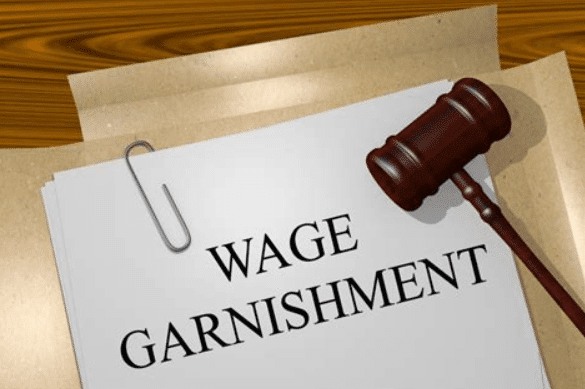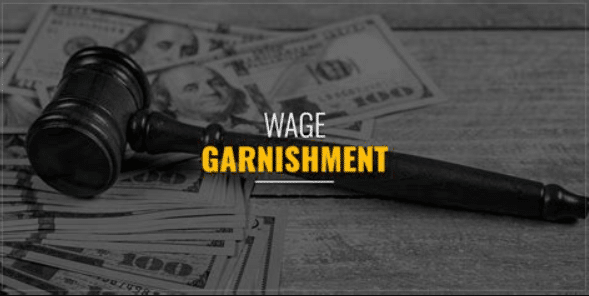If you retired with debt, you might be wondering if your pensions can be taken by debt collectors. Here is ZumaZip.com guide to wage garnishment, pensions, and your rights as a consumer.
Ahh, retirement. Many of us imagine reclining on nice, sandy beaches with Hawaiian shirts, holding a fruity little drink with a paper umbrella in it while relaxing and enjoying time off. Retirement is a beautiful goal and aim to have; you performed years of service leading up to a retirement where you can rest easy knowing that your earned benefits, such as your pension, are owed to you and cannot be taken from you.
However, a scary reality is that if you face extensive debts and obligations, your pension can be garnished by collectors to satisfy any standing debts you have. Regardless of their retirement status, individuals with large debts are commonly approached by creditors to settle these obligations. If these debts are not repaid on time, creditors may opt to take you to court to collect these unpaid debts.
Thankfully, for the most part, pensions are protected from creditors or debt collectors in the same way that social security benefits are. However, your debt collectors may be able to acquire some of your pension income through other collection methods that do not involve directly accessing your pension.
When can debt collectors pursue my assets?
Debt collectors have the right to take you to court if large unpaid debts are owed. If your account is in collections, and if collectors are successful, a court order can be used against you to recover this owed money.
If a creditor or debt collector files a lawsuit against you, make sure you take immediate action to preserve your rights. ZumaZip can help you file an Answer and guide you through fighting debt collectors in the courtroom. Debt collectors can confiscate your bank account, garnish your earnings, and sell your non-exempt property and assets.
If the debt collectors get a court order to garnish your bank account, the pension placed in your bank account may not be safeguarded if it does not meet the Employee Retirement Income Security Act of 1974’s provisions (ERISA). Essentially, these provisions require that if pensions would like to be protected, they must meet a certain standard regulated by this statute.
Employee Retirement Income Security Act of 1974
While most company pensions comply with ERISA, some private pensions, such as IRAs and Roth IRAs, do not. Once these pensions are put into a bank account, they may be in danger.
In addition to the safeguards provided by ERISA, each state establishes its own limits on the amount of money that is shielded from creditors. Under this protection, creditors and courts are not permitted to take funds directly from your pension plan. Your personal pension plan will not be accessible to creditors or the courts for any reason.
Under the ERISA, your pension funds are safe in that account, but you should be aware of specific instances in which creditors or courts may be able to obtain some of your pension funds.
When can my pension be garnished?
When might a creditor or a court order a garnishment of your wages or pension? Essentially, your pension account is its own separate protected entity. Creditors and authorities cannot access your personal account to take your retirement funds. Money in your individual bank account, on the other hand, is a different story. Pension capital that has been deposited into your account may be taken away. In other words, your pension can’t be garnished before it’s given to you, but it can be garnished after you’ve received it.
Although pensions are theoretically a type of income, your retirement funds are legally protected. Your pension funds are intended to assist you in paying your bills and purchasing whatever else you may require to live comfortably. If your pension funds are not included in this category, a court may decide that your extra pension funds can be used to pay off obligations.
State laws vary on wage garnishment
Different states have varying laws for wage garnishment practices and the extent that personal assets can be seized. Understanding the risks and benefits of allowing debts to go unpaid and what actions a creditor can take against you to force payments can help you make wise financial decisions.
Respond to a debt collection lawsuit
Despite the fact that debt collectors normally have a difficult time seizing your pension, you should be prepared to deal with them and arm yourself with the knowledge and resources to protect your assets.
Every year, ten million people in the United States are sued for debt. Because they can’t figure out how to reply and only have up to 35 days to do so, 90% of them lose by default.
The first step to winning a debt collection lawsuit is to respond with a written Answer using these three steps:
- Answer each claim listed in the Complaint document: The first and most important section of your Answer should focus on responding to the claims listed in the Complaint document. You can admit, deny, or deny due to a lack of knowledge. Most attorneys recommend denying as many claims as possible.
- Assert your affirmative defenses: An affirmative defense is any legal reason that a debt collector’s case is invalid. A common affirmative defense to mention in a debt lawsuit case is the statute of limitations on debt. If the statute of limitations on a debt has passed, the debt collector cannot sue you for the debt. There are several other affirmative defenses you can bring up to strengthen your side of the case.
- File the Answer with the court, and send a copy to the party suing you: After you’ve drafted your Answer, you should file it within the court’s deadline. The deadline to respond to a debt lawsuit is anywhere from 14-35 days, depending on which state you live in. Make a copy of the Answer and send it, via USPS certified mail, to the attorneys representing the debt collector or creditor suing you.
Here’s where ZumaZip.com can help!
What is ZumaZip?
ZumaZip is a convenient solution designed to streamline your response to a debt collection lawsuit. Here’s a breakdown of what you can expect when you use ZumaZip:
Firstly, you’ll access our user-friendly web application, which guides you through the process step by step. You’ll be prompted to answer a series of questions related to your specific situation. Once you’ve completed the questionnaire, you have the option to either print out the finalized forms and mail them to the appropriate courts yourself, or you can opt to utilize ZumaZip’s services to file them on your behalf. Additionally, if you choose this option, an attorney will review your document for added peace of mind.
If you’re seeking guidance on how to effectively respond to a debt collection lawsuit, ZumaZip can provide the assistance you need. Feel free to explore our FAQs for more information on what ZumaZip has to offer.
What if I haven’t been sued yet?
If you’ve only received a collections notice, but not a lawsuit, the best way to respond is with a Debt Validation Letter. When a debt collector contacts you in any way, whether it’s by phone or mail, you can respond by formally requesting a debt validation with a Debt Validation Letter . This letter notifies the collector that you dispute the debt and forces them to provide proof you owe the debt. They can’t call you or continue collecting until they provide validation of the debt. This flowchart shows how you can use a Debt Validation Letter to win.
Get started with a Debt Validation Letter here.
How to Answer a Summons for debt collection in all 50 states
Here’s a list of guides on how to respond to a debt collection lawsuit in each state:
- Alabama
- Alaska
- Arizona
- Arkansas
- California
- Colorado
- Connecticut
- Delaware
- Florida
- Georgia
- Hawaii
- Idaho
- Illinois
- Indiana
- Iowa
- Kansas
- Kentucky
- Louisiana
- Maine
- Maryland
- Massachusetts
- Michigan
- Minnesota
- Mississippi
- Missouri
- Montana
- Nebraska
- Nevada
- New Hampshire
- New Jersey
- New Mexico
- New York
- North Carolina
- North Dakota
- Ohio
- Oklahoma
- Oregon
- Pennsylvania
- Rhode Island
- South Carolina
- South Dakota
- Tennessee
- Texas
- Utah
- Vermont; Vermont (Small Claims court)
- Virginia
- Washington
- West Virginia
- Wisconsin
- Wyoming
Guides on how to beat every debt collector
Hey there! Facing off against a debt collector can feel like a daunting challenge, but fear not! We’re here to help you navigate through it all with our handy guides designed to assist you in beating every debt collector you encounter. Whether you’re facing a new lawsuit or dealing with a persistent collector, we’ve got your back. Stay positive, stay informed, and let’s tackle this together!
- Absolute Resolutions Investments LLC
- Accredited Collection Services
- Alliance One
- Amcol Clmbia
- American Recovery Service
- Asset Acceptance LLC
- Asset Recovery Solutions
- Associated Credit Services
- Autovest LLC
- Cach LLC
- Cavalry SPV I LLC
- Cerastes LLC
- Colinfobur
- Covington Credit
- Crown Asset Management
- CTC Debt Collector
- Cypress Financial Recoveries
- Delanor Kemper & Associates
- Eagle Loan of Ohio
- Educap
- Estate Information Services
- FIA Card Services
- Forster & Garbus
- Freshview Solutions
- Fulton Friedman & Gullace LLP
- Harvest Credit Management
- Howard Lee Schiff
- Hudson & Keyse LLC
- Integras Capital Recovery LLC
- Javitch Block
- Jefferson Capital Systems LLC
- LVNV Funding
- Mannbracken
- Mariner Finance
- Medicredit
- Michael J Adams PC
- Michael J Scott
- Midland Funding LLC
- Mullooly, Jeffrey, Rooney & Flynn
- Mountain Land Collections
- MRS Associates
- National Collegiate Trust
- Nationstar Foreclosure
- Northstar Capital Acquisition
- NCEP LLC
- NRC Collection Agency
- OneMain Financial
- Palisades Collection LLC
- Pallida LLC
- Paragon Revenue Group
- Pinnacle Collections Agency
- PMAB LLC
- Portfolio Recovery Associates
- Provest Law
- PYOD LLC
- Reunion Student Loan Finance Corporation
- Revenue Group
- Regents and Associates
- RSIEH
- Salander Enterprises LLC
- Second Round Sub LLC
- Security Credit Services
- Sherman Financial Group
- Suttell and Hammer
- T-Mobile
- Transworld Systems
- Tulsa Teachers Credit Union
- UCB Collection
- Velo Law Office
- Velocity Investments
- Waypoint Resource Group
- Weinberg and Associates
- Wolpoff & Abramson
Settle your medical debt
Having a health challenge is stressful, but dealing medical debt on top of it is overwhelming. Here are some resources on how to manage medical debt.
- Am I Responsible for My Spouse’s Medical Debt?
- Do I Need a Lawyer for Medical Bills?
- Do I Need a Lawyer to Fight Medical Bill Debt?
- Does Bankruptcy Clear Medical Debt?
- How Much Do Collection Agencies Pay for Medical Debt?
- How to Find Medical Debt Forgiveness Programs
- Is There a Statute of Limitations on Medical Bills?
- Medical Debt Statute of Limitations by State
- Summoned to Court for Medical Bills — What Do I Do?
- Summoned to Court for Medical Bills? What to Do Next
Stop calls from Debt Collectors
Do you keep getting calls from an unknown number, only to realize that it’s a debt collector on the other line? If you’ve been called by any of the following numbers, chances are you have collectors coming after you, and we’ll tell you how to stop them.
- 800-390-7584
- 800-289-8004
- 800-955-6600
- 877-366-0169
- 877-591-0747
- 800-278-2420
- 800-604-0064
- 800-846-6406
- 877-317-0948
- 888-899-4332
- 888-912-7925
- 202-367-9070
- 502-267-7522
Other wage garnishment resources
- Bank Account Garnishment and Liens in Texas
- Can I Stop Wage Garnishment?
- Can My Wife’s Bank Account Be Garnished for My Debt?
- Can Payday Loans Garnish Your Wages?
- Can pensions be garnished?
- Can Private Disability Payments Be Garnished?
- Can Social Security Disability Be Garnished?
- Can They Garnish Your Wages for Credit Card Debt?
- Can You Stop a Garnishment Once It Starts?
- Guide to Garnishment Limits by State
- How Can I Stop Wage Garnishments Immediately?
- How Long Before a Creditor Can Garnish Wages?
- How Long Does It Take to Get Garnished Wages Back?
- How to Fight a Wage Garnishment
- How to Prevent Wage Garnishment
- How to Stop a Garnishment
- How to Stop Social Security Wage Garnishment
- How to Stop Wage Garnishment — Everything You Need to Know
- New York Garnishment Laws – Overview
- Ohio Garnishment Laws — What They Say
- Wage Garnishment Lawyer
- What Is Wage Garnishment?



























